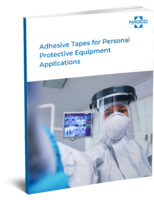Papers Invited for Symposium on biodiesel blended fuels.
Press Release Summary:
Papers are invited for symposium on Thermal and Oxidative Stability of Biodiesel Blended D975 and D7467 Compliant Fuels: Excluding S5000 Grade Fuels. In addition to fuel quality/stability issues after refinery and pipeline distribution, topics include test methods for qualitatively and quantitatively defining biodiesel blended fuels instability; impact of fuel additives on instability of biodiesel blended fuel products; and stakeholder evidence of fuel instability and associated problems.
Original Press Release:
Papers are Invited for ASTM Symposium on Thermal and Oxidative Stability of Biodiesel Blended D975 and D7467 Compliant Fuels
W. CONSHOHOCKEN, Pa.–Papers are invited for a symposium on Thermal and Oxidative Stability of Biodiesel Blended D975 and D7467 Compliant Fuels: Excluding S5000 Grade Fuels, to be held June 27, 2013, at the Fairmont Queen Elizabeth Hotel in Montreal, Quebec City, Canada. Sponsored by ASTM International Committee D02 on Petroleum Products and Lubricants, the symposium will be held in conjunction with the standards development meetings of the committee.
This symposium will provide a technical forum to present papers that discuss current phenomena associated with the thermal and oxidative instability of biodiesel blended ASTM D975 and ASTM D7467 compliant fuels; excluding S5000 grade fuels. This is unique from phase separation and other incompatibility issues that often occur at temperatures below 20°C.
Specific objectives of the symposium are to alert attendees and various affiliated industries to this problem through a credible and internationally recognized organization; and provide a forum for industry experts to present information relevant to the current situation, provide an environment where attendees can solicit information from a panel of experts that is relevant to their areas of responsibility, and document the information exchanged during the symposium for future reference. Papers are invited on the following topics:
• Potential fuel quality and stability issues after the refinery and pipeline distribution;
• Appropriate test methods for qualitatively and quantitatively defining instability of biodiesel blended fuels;
• The potential impact of fuel additives on instability of biodiesel blended fuel products; and
• Evidence of fuel instability and associated problems as experienced by various stakeholders: the U.S. military, the Petroleum Equipment Institute and the automotive and truck Industry.
To participate in the symposium, presenters/authors must submit a 250-300 word preliminary abstract by March 8, 2013. The abstract must include a clear definition of the objective and approach of the work discussed, pointing out material that is new, and present sufficient details regarding results. The presentation and manuscript must not be of a commercial nature nor can it have been previously published. The symposium chairman will notify you by March 15, 2013, of your paper’s acceptability for presentation at the symposium.
Symposium presenters are required to submit their papers to the Selected Technical Paper (STP), an online and printed, peer-reviewed publication for the international scientific and engineering community. After the final selection of abstracts has been approved, the ASTM Editorial Office will send authors’ instructions via email. Manuscripts to be peer reviewed for the STP are due online no later than June 20, 2013, at the ASTM Editorial Office.
Visit www.astm.org/D02CFP-CompliantFuels-06-13 to submit your abstract and for additional information.
Additional technical information is available from symposium co-chairmen Edward English, Fuel Quality Services, Miami, Fla. (phone: 770-967-9790; eenglish@fqsinc.com); or David Forester, Power Service Products, Weatherford, Texas (phone: 817-598-5289; dforester@powerservice.com).
ASTM International is one of the largest international standards development and delivery systems in the world. ASTM International meets the World Trade Organization (WTO) principles for the development of international standards: coherence, consensus, development dimension, effectiveness, impartiality, openness, relevance and transparency. ASTM standards are accepted and used in research and development, product testing, quality systems and commercial transactions.
ASTM Staff Contact: Hannah Sparks, Phone: 610-832-9677; hsparks@astm.org




